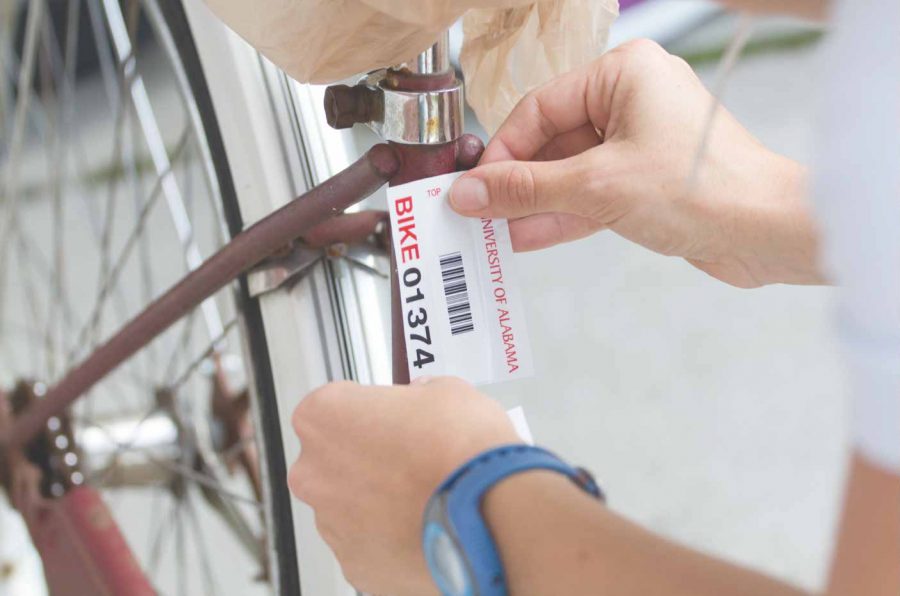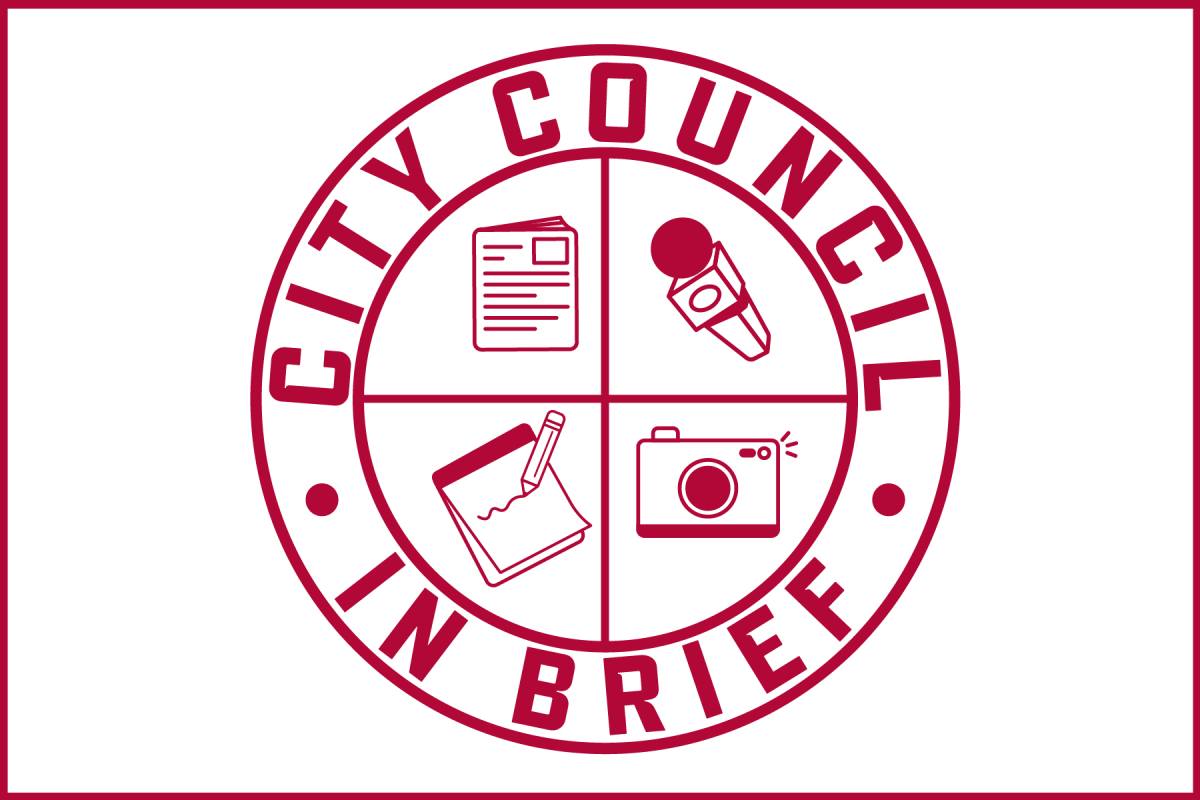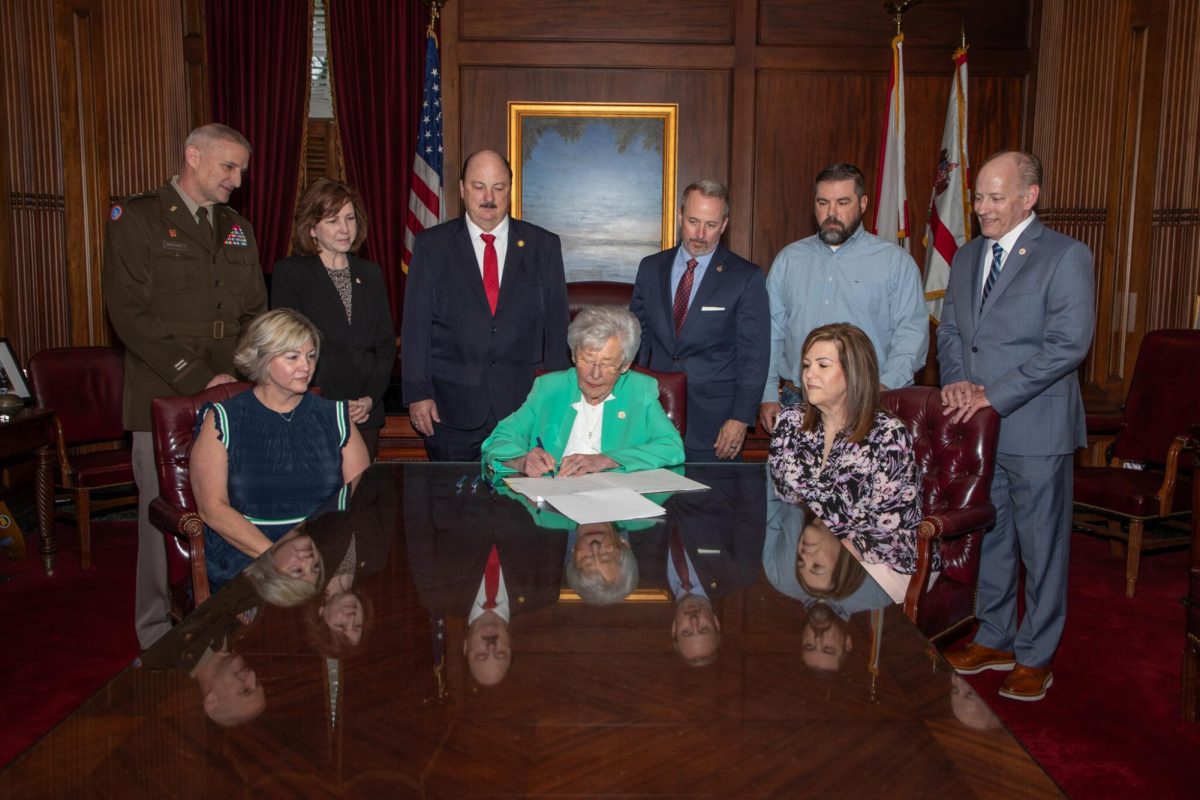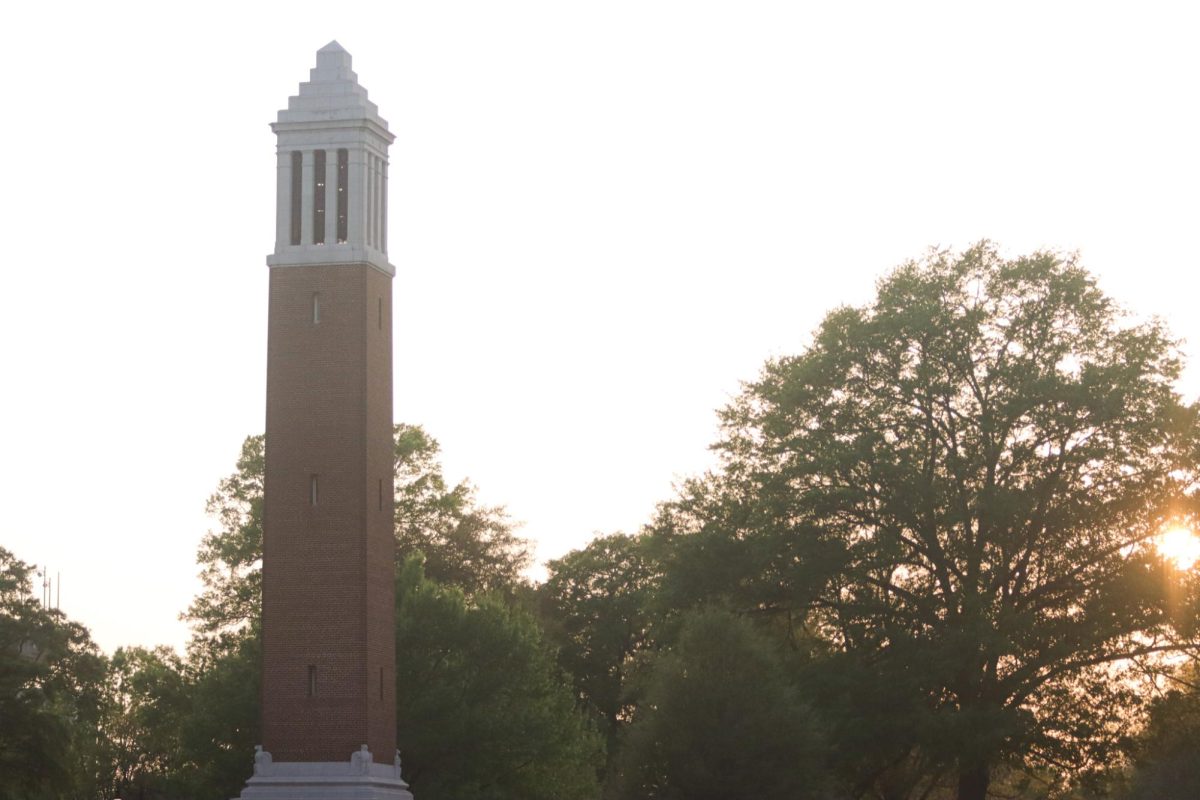No longer placed outside most buildings for quick and easy access, University of Alabama bike racks have migrated. Stuart Glaeser, Parking Services manager, said the sudden move of the bike racks was to ease friction between UA cyclists and pedestrians, among other reasons.
“Having bike racks near the entrances to buildings encouraged cyclists to ride their bikes on the sidewalk, which endangered both cyclists and pedestrians,” Glaeser said. “We also received complaints that the racks located in front of buildings were not aesthetically pleasing when visitors came to campus. Therefore, several of the racks have been removed in front of buildings and have been replaced with new racks in close proximity.”
The University has 330 bike racks that can hold roughly 3,300 bikes, and 50 more racks are scheduled to be installed throughout the upcoming months. The locations of the new racks will be different, as a plan to create bike corrals that are in close proximity to several buildings is being implemented, Glaeser said.
Bikes left chained to more convenient structures, such as trees and trash cans, have frequently been tagged, warning cyclists that if their bike remains there for more than 30 days, it will be impounded. The bike can be picked up by showing proof of ownership and paying a $25 recovery fee; the University does not assume responsibility for damage done to a bike’s lock.
Taylor Ryals, a sophomore majoring in international studies, has had her own tagging experience and said she believes the University is underestimating the effect of UA construction on cyclists.
“Last semester I never had a problem finding a spot to put my bike, but now all the spaces are gone because of the construction. I got a ticket when I left my bike outside of ten Hoor,” Ryals said. “I locked it to the railing by the stairs because my next class is across campus in Farrah. I would park it in a nearby bike rack, but I only have 10 minutes to get to my next class. It takes 13 minutes to walk it, and that’s if I get out of my previous class on time.”
There is not a set number of times a bike will be tagged before it is impounded, Glaeser said.
Other universities in the South have their own regulations, but all vary on enforcement. The University of Tennessee at Knoxville and Auburn University require bikes to be registered, while the University of Georgia doesn’t require registration, according to their respective websites.
Auburn allows for bike parking on grassy areas if bike racks are full and have a set impound fee of $10, while UT doesn’t charge for impoundment. LSU is in the process of making its campus more bike friendly, but bikers must use bike racks and will receive an $18 ticket and $25 impoundment fee for violating regulations.
“We don’t require registration, though. It is available through the Baton Rouge Police Department,” Dabney Hayes, parking enforcement manager at LSU, said. “The bikes can’t be used in the Quadrangle and we start a program of tagging over the summer months, questioning whether the bike has been abandoned.”
LSU picks up more than 500 bikes in its summer tagging program, which all go into a bike auction sponsored by LSU’s SGA. After a bike has been impounded for 90 days, it also goes into the auction, Hayes said.
“There is nothing more exciting than being a part of a growing university; however, as campus grows larger and larger the idea of walking to every class becomes more difficult. I think the University should have bike racks outside of every classroom, and if there’s construction going on where there are no bike racks, then there should be some leniency on where students park their bikes,” Ryals said.
For more info on UA bike policies, visit fawp.ua.edu/bamaparking/bicycle/.









